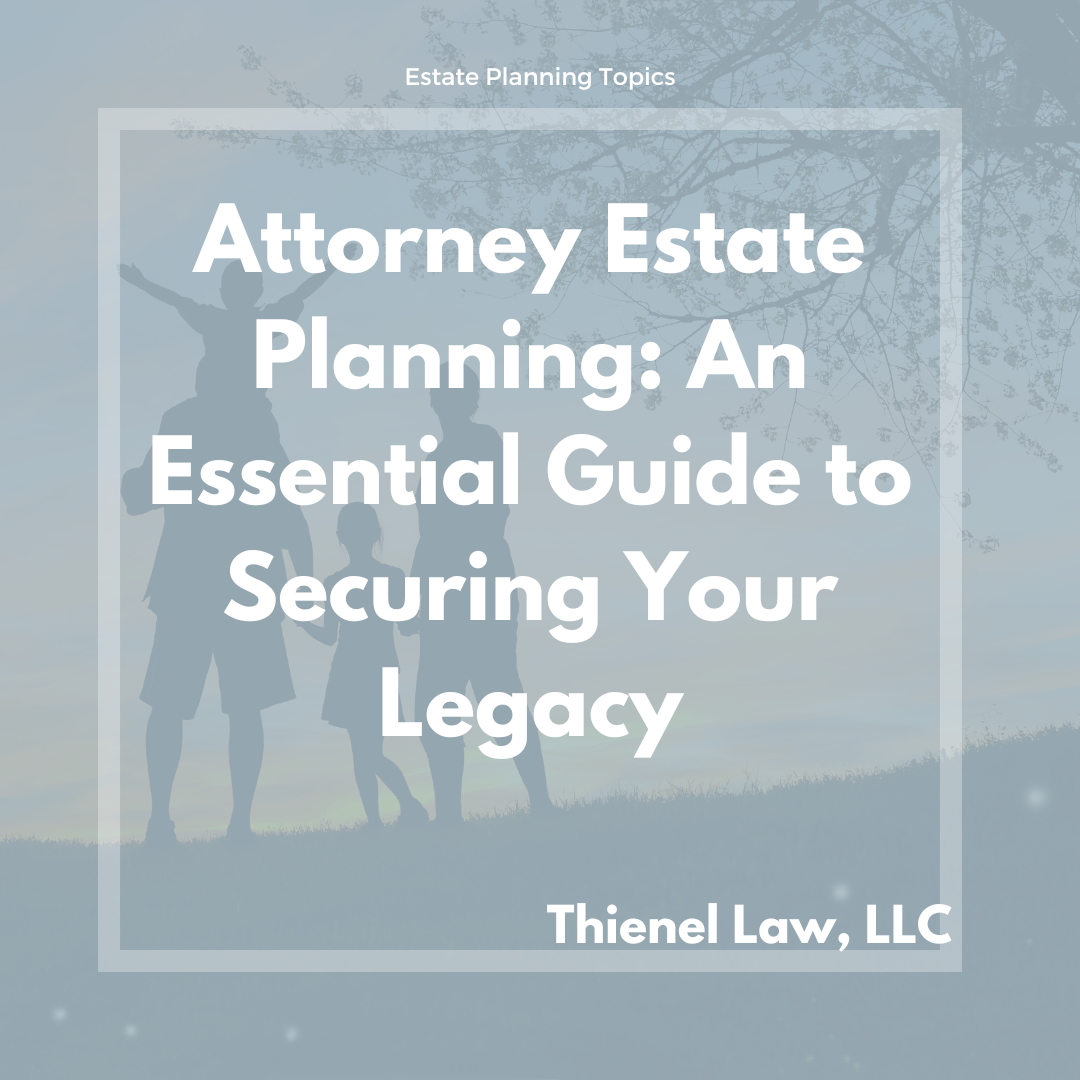
Guardianships
Although we try to avoid having to obtain a guardianship, sometimes it cannot be helped. The planning documents that can make guardianship unnecessary, such as a power of attorney or revocable trust agreement, require a person to have legal capacity. If the individual suffered an incapacitating illness or injury before preparing those documents, it is too late to make them, and we might have to get a guardianship. Also, a child lacks the ability to enter into the legal arrangements that can take the place of a guardianship. In these situations, we can draft guardianship petitions and take them through the court process for you and your loved one.
Proper estate planning is a good way to avoid the prospect of guardianship proceedings. Estate planning attorney Steve Thienel has the compassion and experience you need to plan for your future or step in to care for a loved one in need.
Why We Try to Avoid Guardianships
A guardian cannot be appointed until the person to be protected, the ward, goes through a court proceeding and the judge declares the ward to be incompetent, or lacking the capacity to make or communicate decisions for herself. Once the judge makes this ruling, the ward is not allowed to enter into contracts or make significant decisions about her healthcare and/or financial matters. In essence, a guardianship changes one’s legal status to that of a child, which is why many people hesitate to obtain a guardianship of a loved one.
Guardianships take longer and cost significantly more than drafting planning documents in advance of need. With a document like a power of attorney, you meet with your lawyer and talk about what you want. The lawyer drafts the papers and you come back and sign them. The job is done. And if you want to change the documents, you just meet with your lawyer again. If you want to revoke the papers, you just rip them up.
Guardianships must go through court. There may be multiple lawyers involved, including one for the proposed ward and one for the person offering to serve as the guardian. Once appointed, the guardian will have to file accountings with the court on a regular (usually annual) basis. To change or terminate a guardianship, you must have another court proceeding with at least one hearing.
With all that said, sometimes a guardianship is the only viable choice. If you find yourself in that situation with a loved one, we will work with you to make the guardianship process as smooth as possible. When someone needs a guardianship, the family is going through a difficult time. We are sensitive to that fact, and will be compassionate and caring to you and your loved one.
Complete or Limited Guardianship?
We will meet with you to determine whether your loved one needs a complete or limited guardianship. Sometimes a person is capable of handling some matters for himself but not others. For example, he might be fine at the everyday tasks of self-care but not his financial affairs. It is possible to get a guardianship that is limited in scope. In fact, the current trend is to craft guardianships that preserve as much autonomy and independence as appropriate for the ward.
Who Should Serve as Guardian
After we determine the optimal type of guardianship for your loved one, we will discuss who should serve as the guardian. The choice of guardian is one of the most critical decisions of the entire matter. You should try to list several people who are:
Geographically close or can make themselves available with little notice
Trustworthy
Kind
Intelligent enough to make some decisions themselves and to get professional advice when needed
In the habit of making good life choices
Not dealing with alcohol, drug, or other substance abuse issues (current or past)
Free from current or former issues with gambling, anger, violence
Not experiencing financial problems or have a history of fraudulent activity, exploitation, or embezzlement
Often it is best to designate more than one person to serve as guardian. Doing so will distribute the work and provide more than one set of eyes to see what is being done by the others. When one guardian is on vacation, another can provide coverage without the necessity of a court order. And if one guardian is going through a particularly busy or difficult time, the other guardian or guardians can step in and shoulder the responsibility for a while.
Finally, if one guardian dies, moves away, or becomes otherwise unable or unwilling to serve, you will not have to go back to court to get a new guardian appointed if the court appoints more than one guardian. You must, however, make sure the people you designate can work well together without conflict or confrontation.
How a Guardianship Works
We will file a petition with the court, stating why the person needs a guardian and listing the people who are willing to serve as guardians. Everyone with a legal interest in the matter must receive notice. The judge may appoint someone to serve as the lawyer or representative for the person who is the subject of the guardianship. The judge will order an investigation to determine whether the person needs a guardian.
After the investigation is complete, there will be a hearing. The proposed ward is often at the hearing, as well as the people nominated to serve as guardians. If the judge is convinced by the evidence that the person needs a guardian, she will first declare the person to be incompetent, and thereby a ward. She will then name a guardian or guardians to act on behalf of the ward. The court will send a copy of the court order to all appropriate parties. From that point, the ward can no longer act for himself on whatever matters are described in the order.
We will advise you on the guardian’s responsibilities and what the law empowers them to do on behalf of the ward. We can also help you prepare the periodic court accountings and any other required filings.
If the ward’s condition eventually improves to the point that he is competent to make and communicate his decisions and handle his affairs, he can file a petition to terminate the guardianship. This procedure will require notices, investigation and a hearing, just like the original guardianship action. When the ward dies, the guardianship automatically terminates.
Experience You Can Trust
Estate planning attorney Steve Thienel is dedicated to helping families plan for their future and care for their loved ones. If you need to pursue the guardianship of a loved one, contact me at Thienel Law, LLC today, and I will help your family get through this challenging time.
You Might Also Be Interested In…
Estate Planning: Top 50 Questions Answered
Estate planning can be an uncomfortable and overwhelming process. It doesn’t have to be. Armed with the information you need, estate planning can be an empowering process that takes a load of stress off of you and your family. Get the answers to the top 50 estate-planning questions from an experienced Maryland estate-planning attorney.












